Rx360 was founded following the Heparin incident in 2008 when the drug supply became contaminated, resulting in 81 deaths in the US and left many more injured.
In response, a cross-industry consortium was formed with a mission to prevent this from happening again by protecting the pharmaceutical supply chain and ensuring the quality of materials are always at an optimum level.
In the latest episode of the PharmaSource Podcast we sat down with Rx360 CEO Jim Fries to understand how big an issue counterfeit drugs is in the supply chain today, and how procurement teams should engage with this most critical of issues.
“Let’s face it, in the pharma supply chain there are bad guys and we’re always trying to stay one step ahead. There’s a big financial gain to be made from counterfeiting drugs” says Jim.
“It only takes one incident to have it become a really bad issue again.”
Gilead vs Counterfeiters
As recently as 2022 Gilead were forced to take action to battle the counterfeit drug rings responsible for manufacturing counterfeit bottles of their HIV antiviral pills. It was a high profile case that saw more than 50 counterfeiters identified in a wide reaching investigation.
“Law enforcement worked with legal experts in conjunction with Gilead to uncover and take down a massive counterfeiting ring. Not only did the industry identify the problem, it was researched, the people responsible were found and it was stopped dead in its tracks.” says Jim.
“It really set a precedent moving forward that maybe scares the next people before they decide to do something like that.”
Supply contamination is not always deliberate. “Sometimes contamination is by accident. The best way to combat that is to stay vigilant and keep your eyes open”.
“ The amount of time, energy and money that pharmaceutical companies spend on quality initiatives is just immense. I think a lot of people walking down the street don’t understand the amount of audits that they do with suppliers”.
The response to COVID-19
Lockdowns and supply chain disruption during the COVID-19 pandemic presented a major challenge to auditing supply chain integrity.
“When the pandemic hit all of a sudden, literally in a 24 hour period, we went from doing on-site audits to wondering how we going to audit our suppliers. It’s not like the manufacturing of drugs stopped during the pandemic, it continued to move forward. The issue was how do we optimise and maintain that quality during the pandemic, when we can’t go on-site to do an audit of a facility?”
“In response to this the industry began to focus on remote audit programmes through the use of different technologies. It was exciting to watch it happen so quickly in order to maintain the safety of those drugs throughout the pandemic.”
Best Practices for ensuring supply chain integrity
Jim provides this advice for anyone sourcing pharmaceuticals to include in their process.
“It really comes down to making sure that the audit foundation is solid.” says Jim.
“Make sure that the supplier that you’re working with checks the necessary quality boxes. Make sure the audit is recent and that it comes from the root source and wasn’t passed along from, from one auditor to another. “
“If you not conducting audits yourself, make sure you’re working with an audit partner that has a background in what you’re trying to accomplish. Get all the background and what’s included in that audit report and the timing of it. “
Collaboration with Quality
“If you’re a procurement person at a pharma company, make sure that you have open lines of communication with your quality departments. Those two departments have to work hand in hand to help each other. “
What advice do you have for situations where quality comes into conflict with other objectives such as cost containment or speed to market?
“I think we’d be a little bit naive if we said that internal conflict didn’t exist. But to me, it comes down to one thing: what’s good for the patient?
“If there is a difference of opinion with quality butting heads with procurement or commercial activities, just remember, it’s about the patient. If we can keep that in mind, any hurdle can easily be overcome.”
Listen to the full interview on the podcast platform of your choice.
Sponsored by Olon
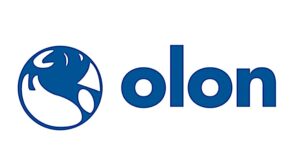
Olon Group is a global leader in the development and production of active pharmaceutical ingredients for CDMO and generic markets, integrating chemical synthesis and biological processes while always embracing the highest international safety, quality, and environmental standards.

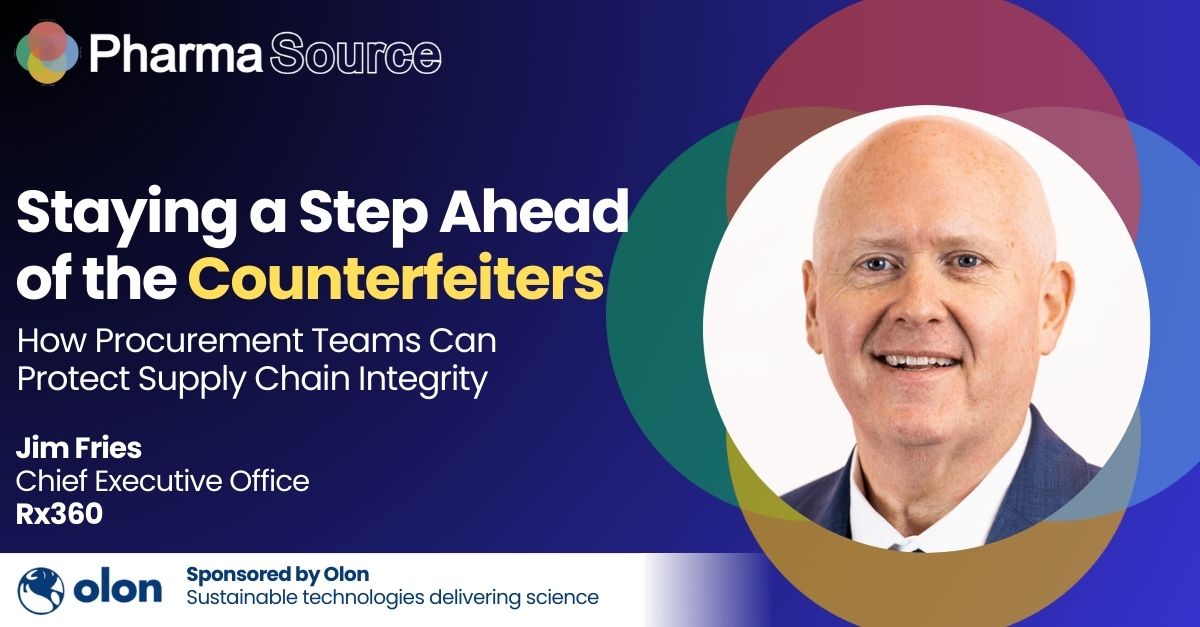


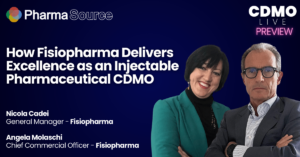
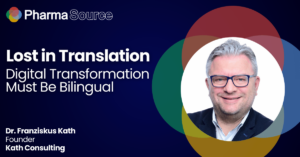
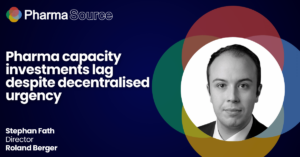
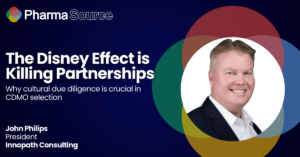
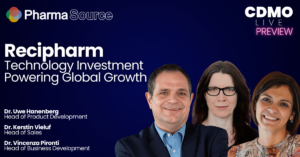

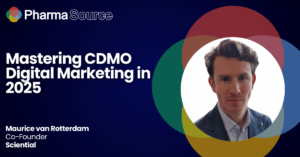
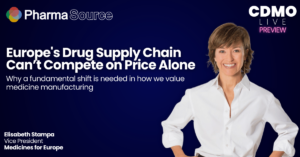
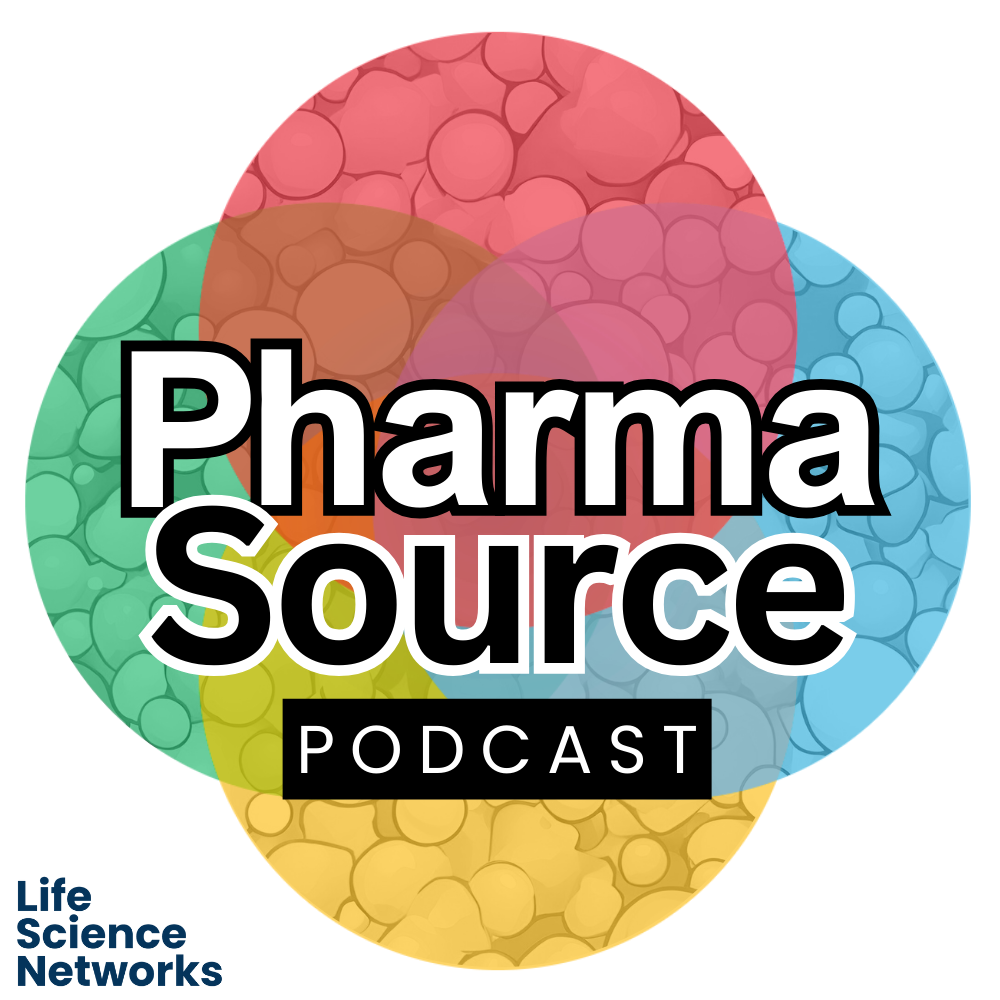
 Stay ahead of trends and best practices
Stay ahead of trends and best practices
